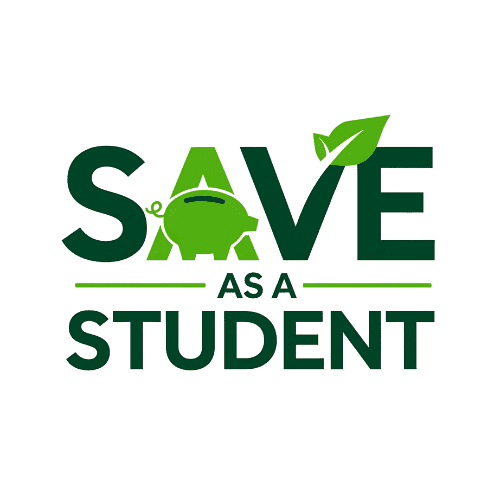What is Financial Literacy for Students?
Financial literacy for students means more than mere budgeting, financial literacy is the ability to understand and effectively manage our personal finances, including investing and saving money. It is important that people learn about personal finance. If college students do not, then it might be hard for them to make decisions on their future.
The answer to that is: get started anywhere! In the beginning stages of your tertiary education or in your final year,financial matters like this will matter over time no less than the money you earn with efforts spent elsewhere.
Table of Contents
The Importance of Financial Literacy for College Students
Understanding financial literacy the education you get about finance that makes all of the difference. Many students struggle with credit card debt, student loans and living expenses because they lack proper financial education. These problems can seriously damage students’ future financial prospects.
Learning financial literacy early through financial literacy courses or free financial literacy programs if we’re going to trend prosperous, It’s imperative that we provide students with a solid financial education. The sooner you learn to budget, save and invest, the better prepared you’ll be to tackle financial challenges that may lie ahead as an adult then ambiguous period.
Budgeting Tips for College Students
One of the best ways to practice financial literacy is by creating and sticking to a budget plan. Here are a few essential budgeting tips to help you manage your money:
- Track Your Expenses: A budgetary calculator or online budgeting tools can be used for monitoring all the money spent. With items like books and rent or groceries, how much money you save or overspend determines whether or not a budget will work successfully for you.
- Set Financial Goals: Not only does financial literacy mean saving pennies, it also means striving for bigger objectives. Perhaps you want to save for spring break or hope someday be able repay your student loans.
- Limit Unnecessary Spending: It can be all too easy to spend money on a party night or fast food. By basics for which there is no choice whatever, you will achieve economic security quicker and avoid extravagance.
- Utilize Student Discounts: Many companies give student discounts, from software to meals. Get your expenses down by enjoying these benefits.
The Best Way to Budget for Beginners
Budgeting may seem overwhelming at first, but using a structured approach simplifies the process. Here’s the best way to budget:
- Create a Monthly Budget: Cumulative monthly income and part-time funds if necessary financial aid, deducted after essentials cost rent or utilities. The remainder goes to savings, food and other non essential items.
- Use the 50/30/20 Rule: According to this popular budget model, 50% of income is spent on necessities; 30% goes for fun and discretionary spends, while just as much free cash is put toward repaying debts or saving up emergency rations.
- Automate Your Savings: You might want to set up online banking so that a portion of your income goes straight into savings.
- Adjust as Needed: At the end of each month, analyze your budget: Was there too much spending or unexpected economy? Adjust and improve for next time based on what you learn!
Exploring Financial Education Courses
Students can take a class in financial literacy as that is one of the best ways to increase knowledge on how money works. These lessons are designed to teach you the building blocks of personal finance, understanding credit, and long-term investment. Many colleges offer personal finance classes, and there are also free financial literacy courses for young adults available online.
Taking a beginner’s financial literacy course is one of the best ways to
Financial Literacy Programs for Students
Colleges and universities often provide financial literacy programs planned and implemented to enrich Chinese students’ knowledge of fiscal affairs. Some of them even provide free financial classes, seminars, and lectures on Money Management. These programs are designed for students to understand the basics of money management
Starting with matters such as credit history, interest rates, how student loans work and why they should have an emergency fund By attending these programs you can even get the knowledge that will help to inform your financial decisions.
Tools for Budgeting and Money Management
When you have the tools that are right for managing your money, it becomes a lot easier. Here are some resources to help you fulfill that objective:
- Budgeting websites: Mint.com and YNAB (You Need A Budget) are sites that help track spending, set goals and create personalized budgets based on the data double-entry-results open source accounting offers.
- Money management worksheets: A low-tech way to track your monthly budget and make sure that you are not exceeding spending limits is printed worksheets.
- Personal finance apps: PocketGuard and Wally are apps that are perfect for managing day-to-day expenses–and saving up to bring your long term goals into reality.
Conclusion: Take Control of Your Financial Future
Mastering financial literacy for students is one of the most important skills you can develop during your college years. With even a basic knowledge of personal finance, a feasible budget along with taking financial education courses which are there for everyone, you will set your whole life in motion. It is equally applicable to your college period as to the rest of what follows.
https://www.2adays.com/blog/8-tips-for-building-financial-literacy-and-budgeting-skills-for-college-students/The time to learn money management is now, when you finally have some, and one way to start is by signing up for a financial literacy class (don’t worry if this is unfamiliar). If you graduate with good financial habits then they will help provide the solid structure from which you can build a secure financial future.
When you know what it is then you can take deliberate steps to ensure that college is a financially stress-free experience and sets up the groundwork for your continued success after graduation.
People also ask
How can a student be financially literate?
It can start a college finance literacy by teaching fundamental money management skills such as budgeting and saving, as well as by understanding credit, paying attention to what’s happening now down the line later than ever before with interest rates 42% (51% HRD research 3/4 c).
How do you teach students about budgeting?
Teach budgeting using practical tools like budgeting apps, drawing up budgets or talking honestly about one’s own financial life within the classroom setting.
What are the 5 steps to creating a student budget?
Determine where your income comes from.
Write out all expenses.
Decide what is essential and non-essential to you.
Estimate reasonable limits for expenditures.
Review and adjust frequently whenever necessary.
What is the purpose of budgeting for students?
Budgeting helps students to control finances, avoid debt, build good financial habits. It brings economic responsibility and leaves one prepared for both their short-term and ongoing needs.
What are the 4 A’s of budgeting?
The four steps to success in budgeting are: Assess, Allocate, Adjust and Analyze. Assess your current financial situation, Allocate funds prudently, Adjust for unexpected changes and Analyze your expenditure patterns to improve on future budgets.

